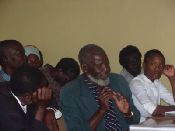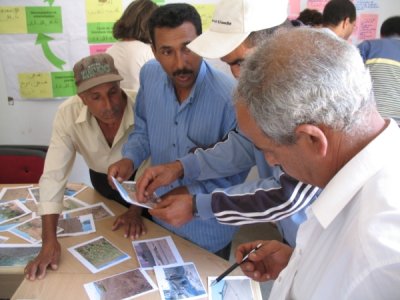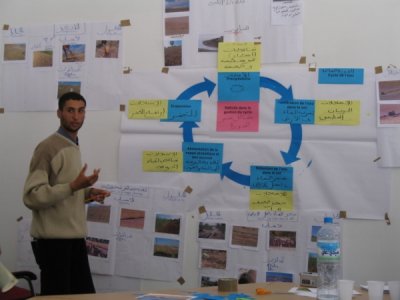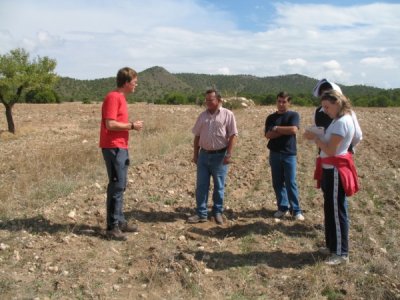|
... using a participatory learning approach (Stakeholder Workshop 1).
Objectives
- To initiate a mutual learning process among local and external participants by sharing experience and jointly reflecting on current and potential problems and solutions regarding land degradation and desertification.
- To create a common understanding of problems, potentials and opportunities of the respective study site by integrating external and internal perceptions.
- To strengthen trust and collaboration among stakeholders.
- To identify existing and new strategies to prevent or mitigate land degradation and desertification.
- To select strategies for further evaluation and documentation with the WOCAT methodology (WP 3.2).
The workshop methodology was developed on the basis of experiences with the  ‘Learning for Sustainability (LforS)’ (link expired) approach. It comprises the following exercises: ‘Learning for Sustainability (LforS)’ (link expired) approach. It comprises the following exercises:
| Exercise |
Objectives |
| Picture gallery |
- To establish a relaxed working atmosphere and introduce participants and their interest in the topic.
|
| The water and biomass cycles |
- To explore links between the water and biomass cycles; to identify disturbances in the cycles, their causes and effects in order to understand land degradation processes and their dynamics in the local context.
- To identify already applied solutions to land degradation.
|
| Local indicators |
- To identify indicators used by local stakeholders to recognize land degradation processes and land conservation respectively.
|
| Stakeholder analysis |
- To identify the stakeholders relevant for sustainable land management; their motivation / interest and influence / power concerning the implementation of sustainable land management.
|
| Already applied and potential solutions |
- To identify technologies / strategies not yet applied but potentially suitable for the local context by integrating the perspective, knowledge and experience of external stakeholders.
- To briefly assess already applied and potential solutions.
|
| Synthesis |
- Outline of an SLM strategy
- To create awareness on the need of a comprehensive strategy and identify important elements for a draft outline of a SLM strategy for the local context.
|
More details ... the results from each study site of Stakeholder Workshop 1
|
|
»Guadalentín, Spain
»Mação & Góis, Portugal
»Rendina, Italy
»Crete, Greece
»Nestos River Delta, Greece
»Karapinar, Turkey
»Eskişehir, Turkey
»Sehoul, Morocco
|
»Zeuss Koutine, Tunisia
»Dzhanibek, Russia
»Novy, Russia
»Yan River Delta, China
»Boteti, Botswana
»Cointzio, Mexico
»Secano Interior, Chile
»Ribeira Seca, Cape Verde |
|
|
|





